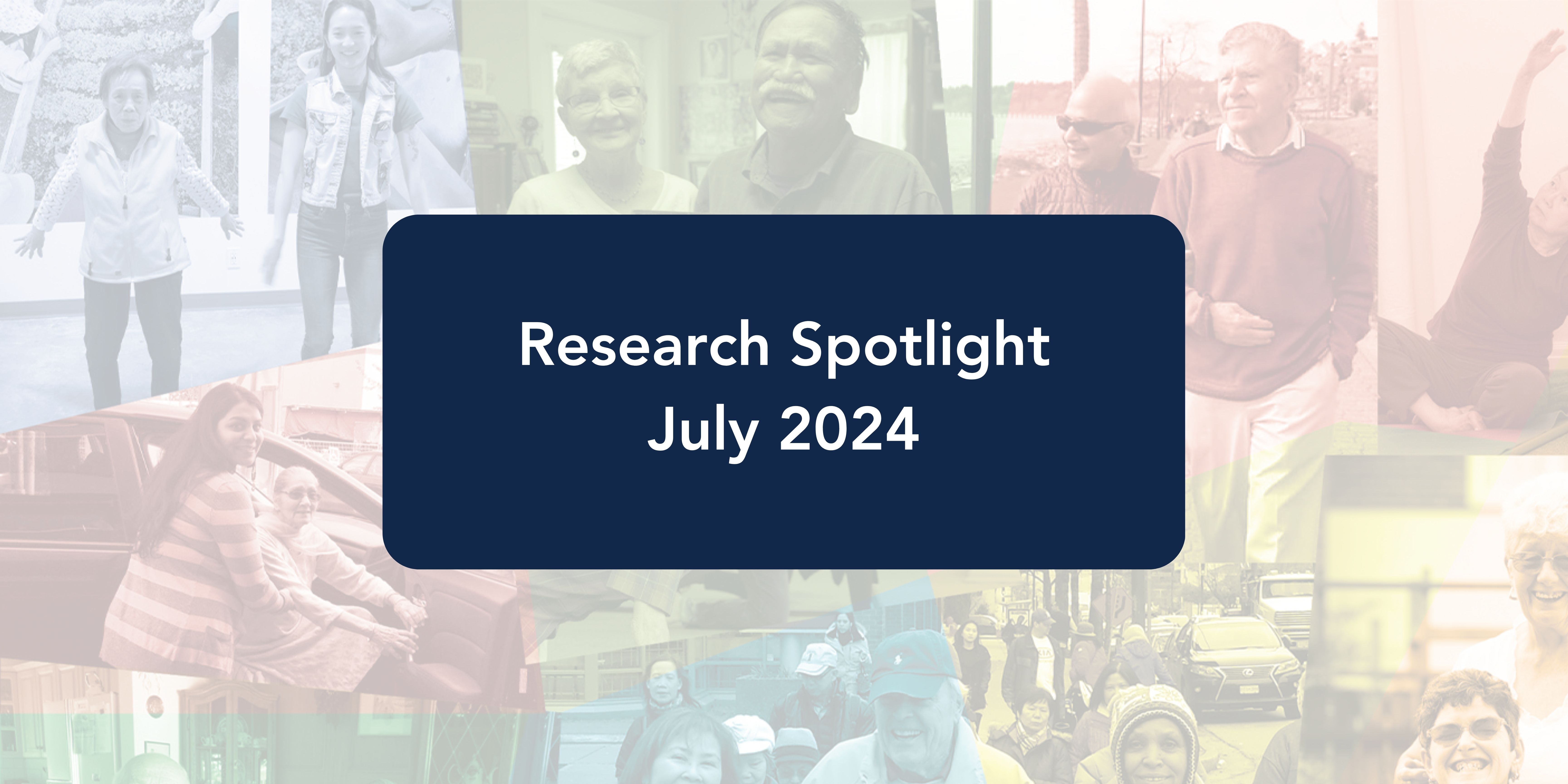Healthy Aging CORE Research Spotlight: July 2024

Research Spotlight: Housing Assessment Resource Tools
Affordable housing is a growing need for low-income people across Canada, including the many low-income seniors who are living on fixed incomes. The Housing Assessment Resource Tools (HART) project is a research group that works toward evidence and data-based solutions to Canada’s housing crisis. Their goal is to develop standardized, replicable and equity-focused tools, along with associated public information and training, to improve the quality of housing supply decision-making at all levels of government across Canada. On the HART project website there are three main tools you can access:
- Housing Needs Assessment Tool: Based on census data this tool provides information about core housing need and affordable shelter costs by income category, household size, and priority populations (including seniors). Data is available at the provincial level as well as for census divisions and subdivisions for some communities.
- Land Assessment Tool: This tool maps out suitable public land that could potentially be used to build non-profit affordable housing. Data is currently available for 12 major cities across Canada.
- Property Acquisitions Tool: This tool provides information on strategies for property acquisition (i.e., public and non-profit housing providers acquiring affordable housing that is at risk of being lost).
New Statistics Canada Resources
Rural and Small Town Canada Interactive Dashboards
The Rural and Small Town Canada Interactive Dashboards summarize data on the dynamic social, economic and environmental landscape of rural and small town Canada. This series includes interactive dashboards focused on communities, business and trade, employment insurance beneficiaries, non-profit organizations, and housing.
New Research on CORE
- [Report] A Human Rights-Based Calculation of Canada’s Housing Supply Shortages (Carolyn Whitzman)
- [Podcast Series] Demystifying Community Housing (IRPP Policy Options)
New Journal Articles
Open Access Articles: Articles that are free and accessible to the general public.
Geary, R., Mantik, J., Moore, V., Schuller, J., Fedoruk, R., Atkins, M., & Chan, C. B. (2024). COMmunity-Based Nutrition RISK Screening in Older Adults Living Independently (COMRISK): Feasibility, Acceptability, and Appropriateness of Community Partnership Models in Alberta, Canada. Canadian Journal on Aging / La Revue Canadienne Du Vieillissement, 43(2), 287–296. doi:10.1017/S071498082300058
This study explored the feasibility of using a nutrition risk screening tool for community-dwelling older adults in primary care and community-based organization settings. The 8-question screening tool was considered to be feasible, acceptable, and appropriate by the staff working in these settings. Amongst the 276 older adults screened, 53% were at moderate nutrition risk and 8% high nutrition risk. Depending on their level of risk, older adults were then referred to a registered dietician, virtual programming, meal programs, or other available services and resources. Challenges for this model including older adults refusing referrals and poor communication between community-based organizations and health system partners.
Park, S., Park, S., Ryu, B., Baek, J., Amano, T., & Kim, B. (2024). Subsidized Senior Housing in the US: A Scoping Review. Journal of Applied Gerontology, 43(7), 814-828. https://doi.org/10.1177/07334648231223028
In this scoping review, the authors summarize the findings of 61 articles on subsidized seniors housing (SSH) in the USA. The most common themes the articles focused on were (1) health and well-being, (2) healthcare use and health behaviors, (3) social relations, and (4) housing relocation. Some of the trends that emerged from the studies included a higher risk of cognitive impairment amongst SSH residents, the need for programs and services targeting ethnic and racial minorities, and the positive impacts environmental aspects (e.g., neighborhood resources, technology access, in-housing services, and staffing) can have on behavioral outcomes among SSH residents.
-
Date
Jul 24, 2024
-
By
Healthy Aging CORE
